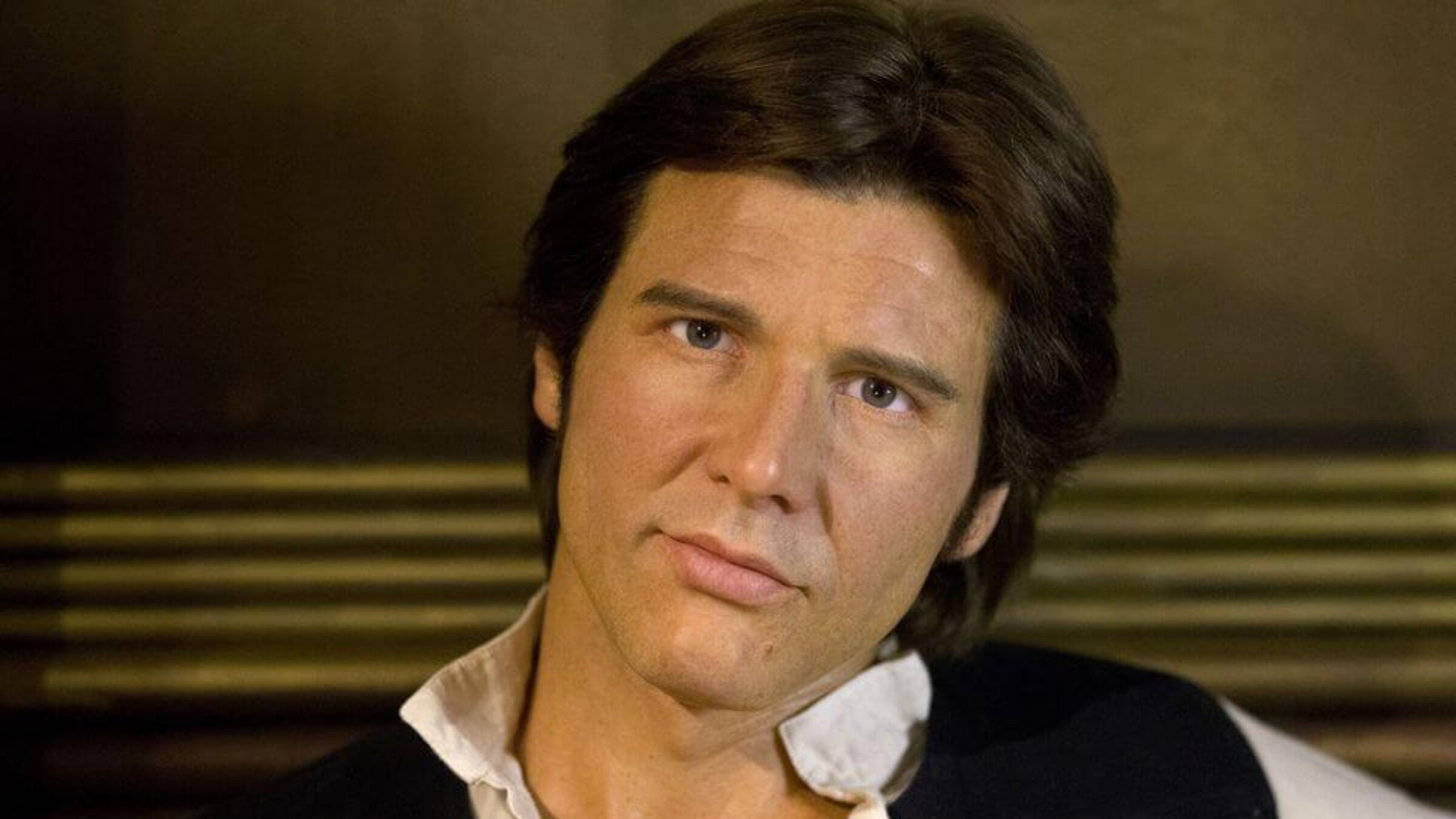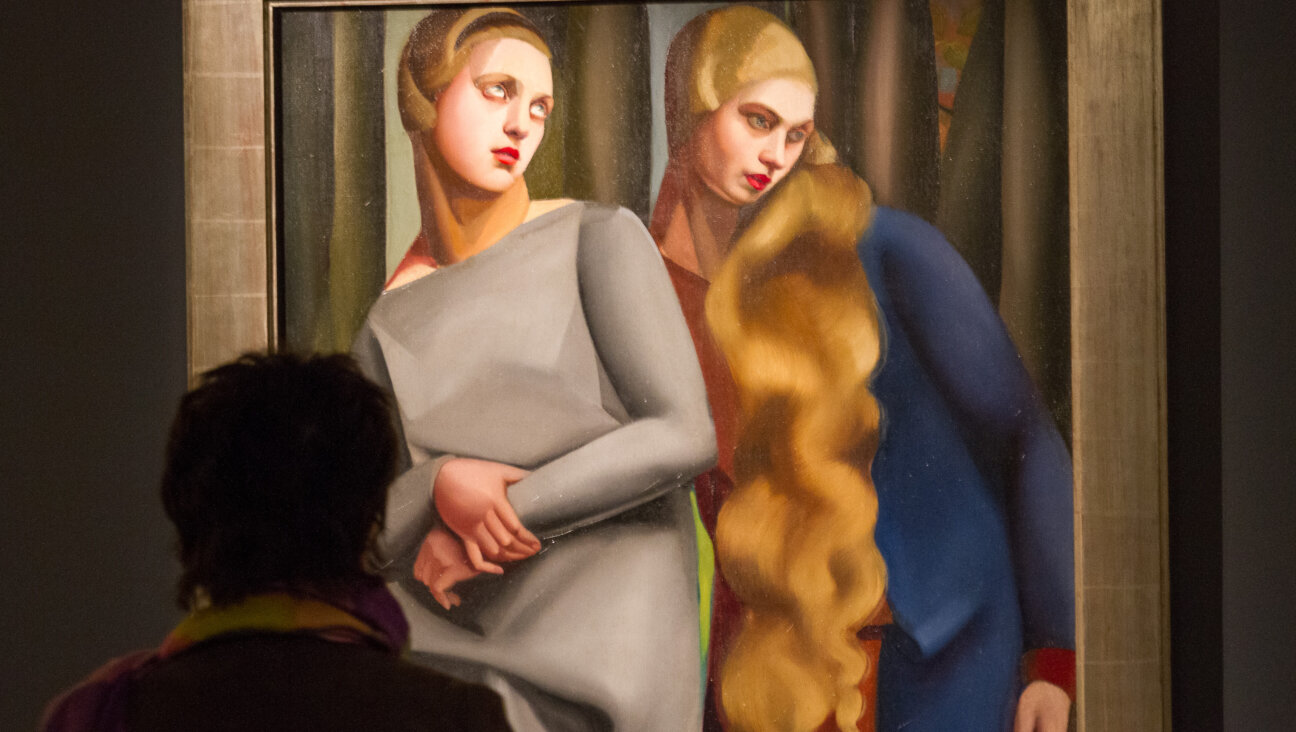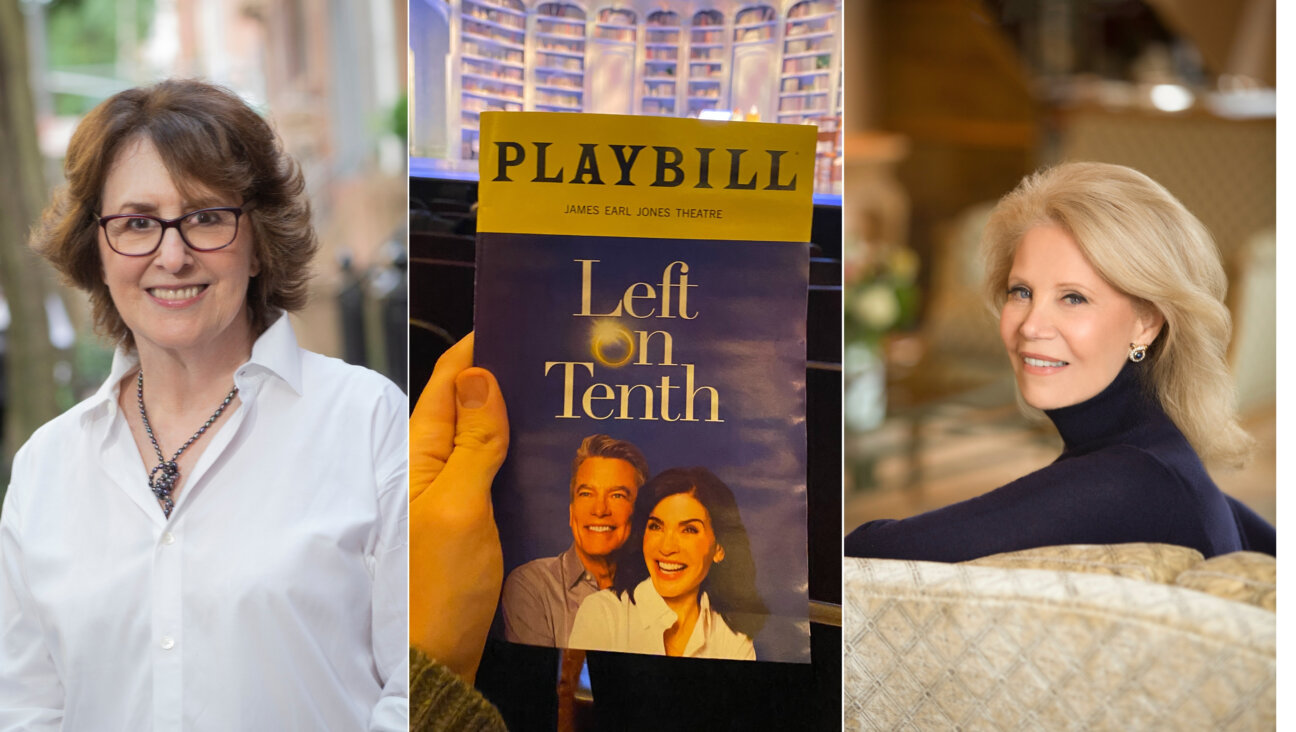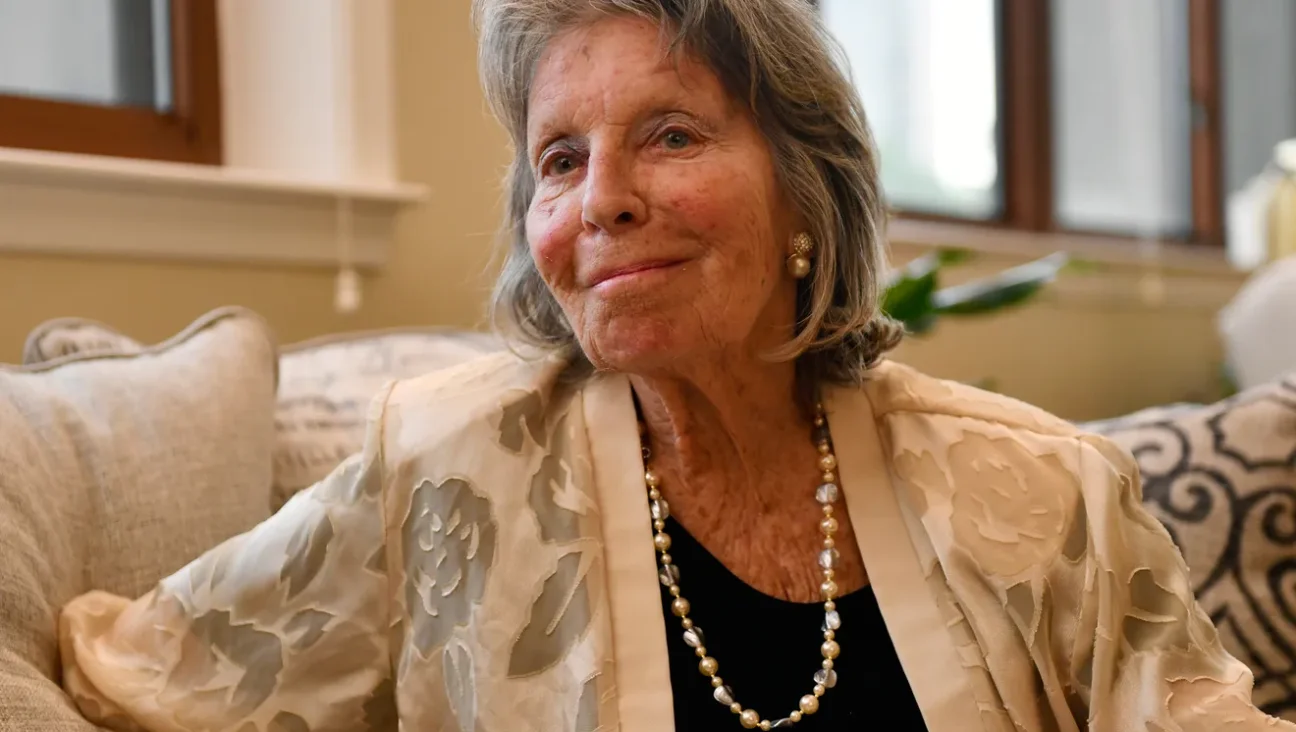Why Han Solo is the most goyish ‘Star Wars’ hero

Photo by Getty Images
In Lenny Bruce’s terms, Han Solo always struck me as the most goyish of the “Star Wars” heroes. And in the new film “Solo,” he seems even more so.
Recall (or, for a younger generation, come and learn) that for the outlaw comedian Lenny Bruce, Jewishness was a matter of sensibility more than religion or tribe. All the Beatles were gentiles, for example, but John and Ringo were “Jewish.” Paul, on the other hand, overwhelmingly “Goyish.” (George is a matter of dispute.) It’s hard to say exactly what factors count — Paul’s sincerity, John’s bitterness, Ringo’s nose — but you know it when you see it.
In the first “Star Wars” trilogy (Episodes 4 through 6, I mean), it’s clear who the Jews are: the Jedi, that persecuted, ancient band of mystical warriors. Obi-Wan Kenobi is Luke’s rabbi. Yoda is, well, Yoda — even his name is Hebrew. And while Jedi philosophy is more New Age Buddhism than Judaism, just the fact that there’s a philosophy at all — morality, up against the Nazi-like Empire’s might-makes-right fascism — makes the Jedi Jewish.
Han Solo, on the other hand, was always a bit of a bully — which, for this nerdy Jewish kid, made him goyish by default. But it wasn’t just that. Obi-Wan taught Luke to use the Force — to follow God, the Divine breath within all life. Solo taunted Luke while he shot up stormtroopers with his blaster. He reminded me of those medieval haggadahs which depicted the “wicked son” as a knight in armor.
Han also represented a kind of macho masculinity that, thinking of Daniel Boyarin’s work here, seemed the opposite of the Jewish-Jedi emphasis of brain over brawn. This included, infamously, sexually assaulting Princess Leia — but as we have been reminded over the last year, Jewish men do plenty of sexual assaulting too. Han Solo’s masculinity was something deeper. He was a hero, yes, but a chauvinist, too, with difficulty expressing his feelings. He was most comfortable piloting his fast ship and shooting stuff. And, of course, bragging, like the current resident of the White House.
So, when news of Solo began to surface, I wasn’t that inspired. I’d rather see an origin story about Obi-Wan. Hell, I’d rather see an origin story about Chewbacca. But I’m a fan, and just like I schlep to every Woody Allen film regardless of how good or bad it is, I knew I was going to see “Solo.” And so I did.
Happily, the movie wasn’t bad. Not great, but good fun nonetheless, with enough Easter eggs for fans to make it interesting (and one big egg at the end, which I won’t reveal). It’s also perhaps the most accessible “Star Wars” film, since it barely touches on the master narrative of the series.
But somehow, Han Solo emerged even more goyish than ever.
In Episodes 4 through 7, Solo is, for all his macho swagger, a wounded man. He’s spent his life running from the law, and while he clearly relishes being an outlaw, he also seems aware that much of his life has been wasted doing so. Eventually, Han’s cynicism is cracked open, and he becomes a full-fledged rebel against the Empire. But Episode 4 makes it clear that he might just let the rebels get massacred. Han is literally frozen at the end of Empire, but his humanity is half frozen-over throughout.
Given that character, and given the fact that Solo starts with the adolescent Han trapped in a slave labor camp, you might expect Solo and its protagonist to be struggling with trauma — which, as I discussed in my review of the very “Jewish” Harry Potter play, is a central element of the Euro-American Jewish experience.
Nope. Unlike Harrison Ford’s Han Solo, Alden Ehrenreich’s Han Solo is pretty much Mister Happy from the get-go.
I’m not sure who’s to blame for that: it could be Ehrenreich, or director Ron Howard, or even the screenwriters, although one of them, Lawrence Kasdan, directed the ultra-dark “Empire Strikes Back” and thus is inoculated from criticism, at least by me. I tend to blame Disney, and the state of the film industry as a whole right now. I think someone in a suit decreed that a franchise tent-pole is not going to focus on an anti-hero, that the film needs to play to wide audiences across the world, and that if it gets saddled with the label of “dark,” people won’t take their kids to see it.
That’s all speculation, of course. But this is a film that grossed nearly $100 million in its opening weekend and was still considered a failure because it didn’t gross even more. When the stakes are this high, commerce tends to win out over art.
Whoever is to blame, though, the dissonance of this new, shiny Han is shocking. He smiles all the time: plays cards with Lando Calrissian, bragging “I’m an outlaw!” to his love interest, goes AWOL from the empire, flies the Millennium Falcon through the Kessel Run (yes, in twelve parsecs), even barely cheats death a half dozen times. Yes, Han’s a bit of a gangster, he shoots a lot of people, and he doesn’t have a strong moral center other than self-interest. But this is not a man haunted by nightmares of being a slave for his entire childhood.
Which, again, feels very goyish. Jews are haunted by memory of collective trauma, and if we’re not haunted enough, our liturgy reminds us of it every single day. Han has seemingly forgotten his literal exodus from slavery — Jews have to remember it even though it happened 3,000 years ago. Jews are Passover; Han Solo is Thanksgiving.
Moreover, Solo offers several pointed contrasts to Han’s blithe spirit. His mentor Tobias Beckett, played by Woody Harrelson, really is the cynical, traitorous gangster Han never quite becomes. There are a few idealistic proto-rebels who, foreshadowing Luke and Leia, try to uncover the better angels of his nature.
But most importantly, there is Qi’Ra, who had been enslaved together with Han, and who narrowly missed escaping when he did. Without giving too much away here, Qi’Ra’s trauma gets the better of her. She cannot erase what happened to her, and what happened changed her into a person utterly different from the one Han loved years ago. Her wound is visible, believable and deep.
It’s a depth Han Solo lacks. The way “Solo” ends (and according to what Variety reports), it is clearly setting us up for a trilogy of films, during which, we may assume, Han will darken into the person we meet in Episode 4. In this way, “Solo” resembles nothing so much as “The Phantom Menace,” which introduced us to a ludicrously young Anakin Skywalker, a cute mop-top who scarcely resembles one of the cinema’s most memorable villains. Don’t worry, George Lucas told us at the time, he’ll turn into Darth Vader eventually.
In the meantime, though, both cuddly Anakin and twinky Han are shallow — one too young for much depth, the other too optimistic for it. Solo’s Solo reminds me of those assimilated Jews who smile a lot and vote Republican; they seem so white, so American — unmarked by their history, unaware of irony, uninterested in the source of sadness and soulfulness. Of course, these Jews are Jews. But if Lenny Bruce is right, they’re goyish too.
And in the young Han Solo, they have their hero.
A message from our Publisher & CEO Rachel Fishman Feddersen

I hope you appreciated this article. Before you go, I’d like to ask you to please support the Forward’s award-winning, nonprofit journalism so that we can be prepared for whatever news 2025 brings.
At a time when other newsrooms are closing or cutting back, the Forward has removed its paywall and invested additional resources to report on the ground from Israel and around the U.S. on the impact of the war, rising antisemitism and polarized discourse.
Readers like you make it all possible. Support our work by becoming a Forward Member and connect with our journalism and your community.
— Rachel Fishman Feddersen, Publisher and CEO
























